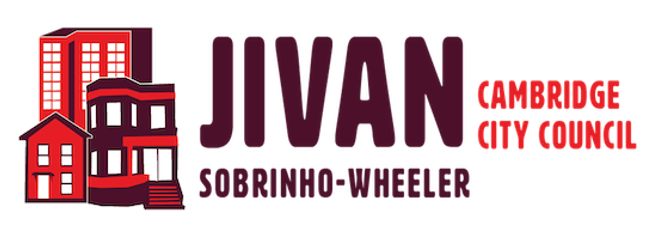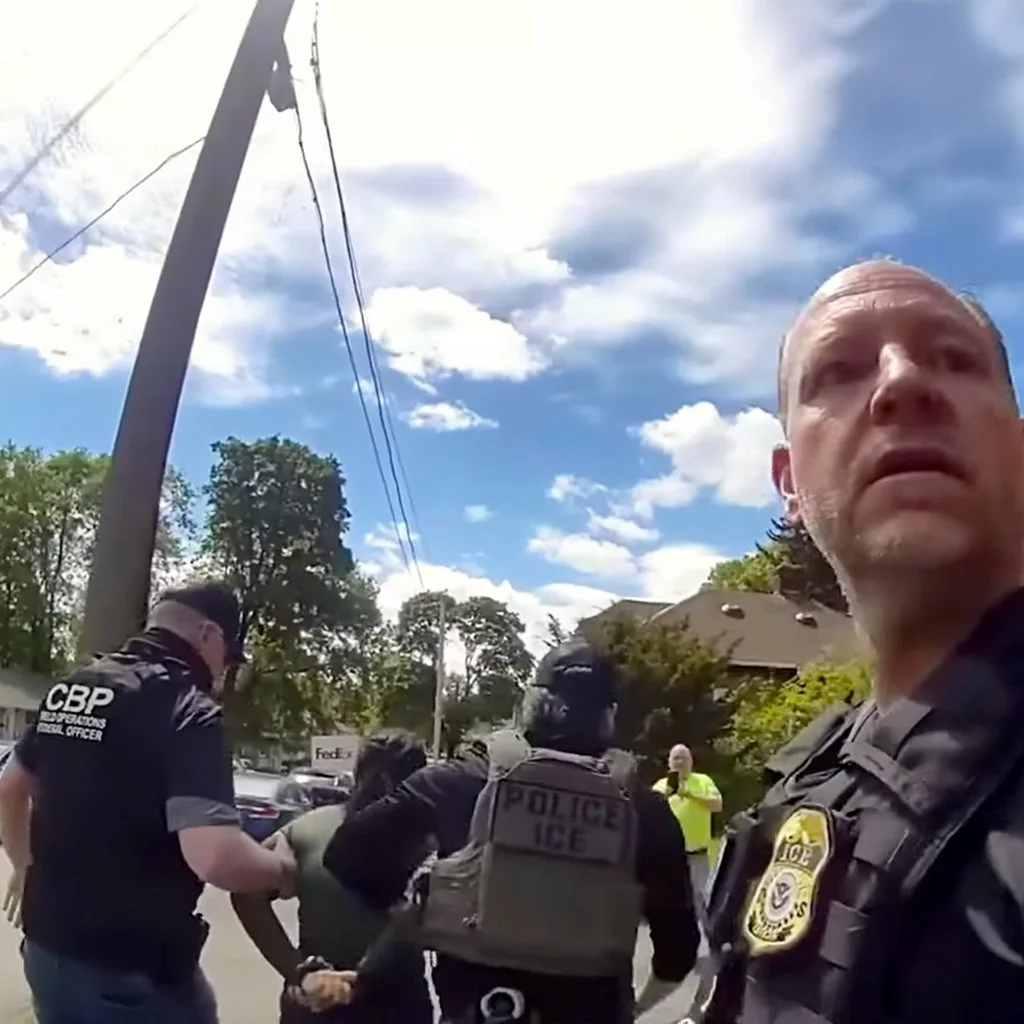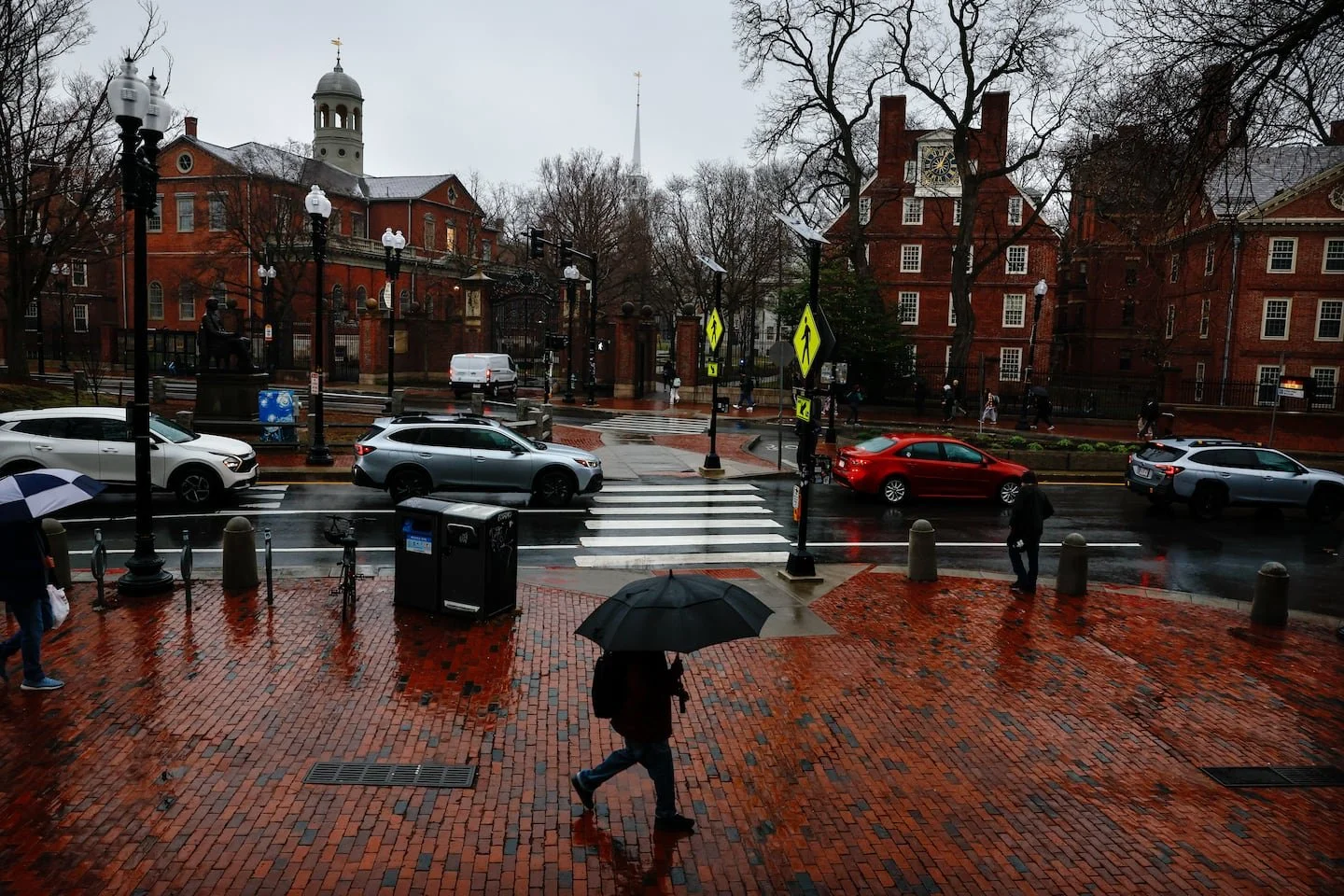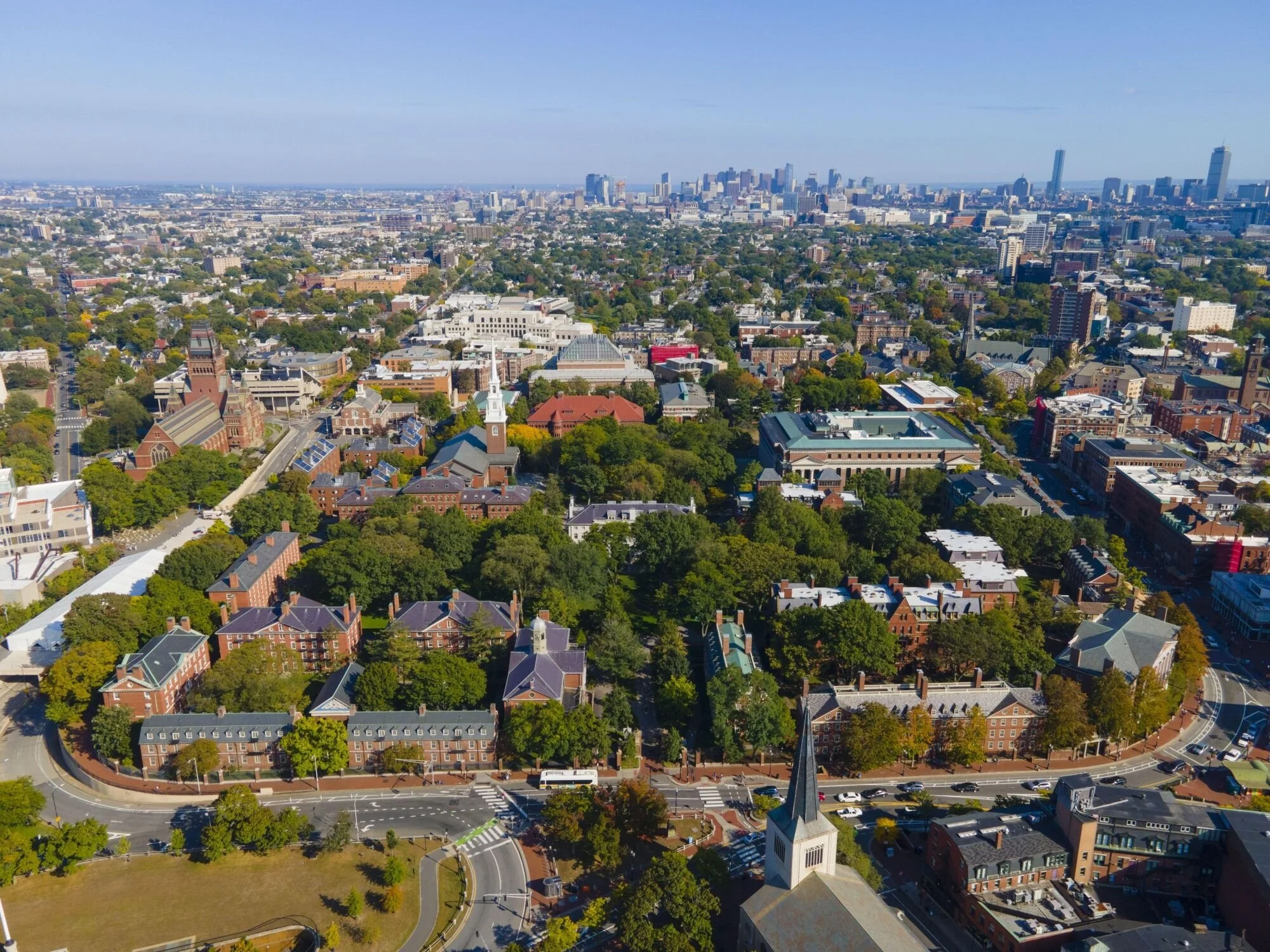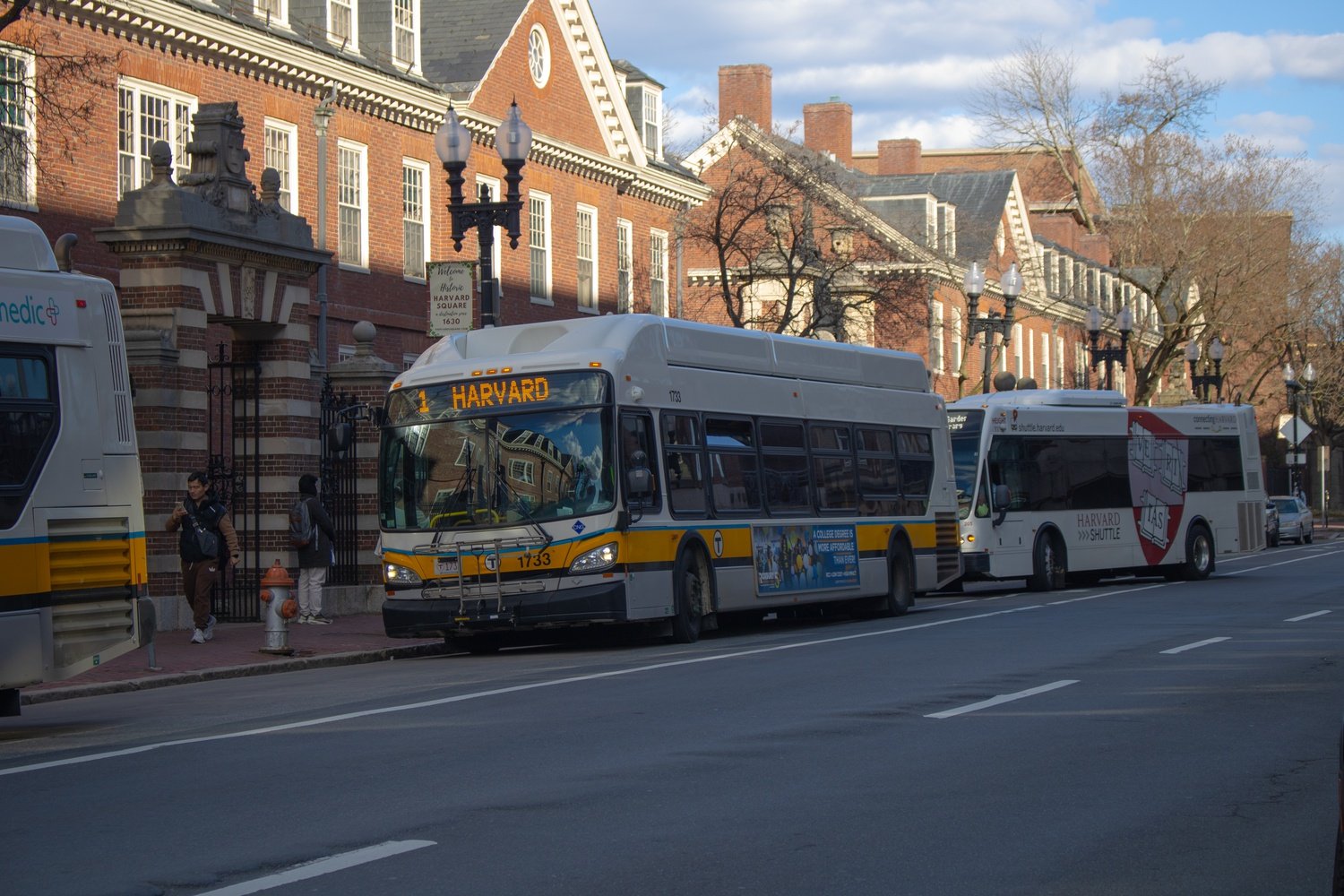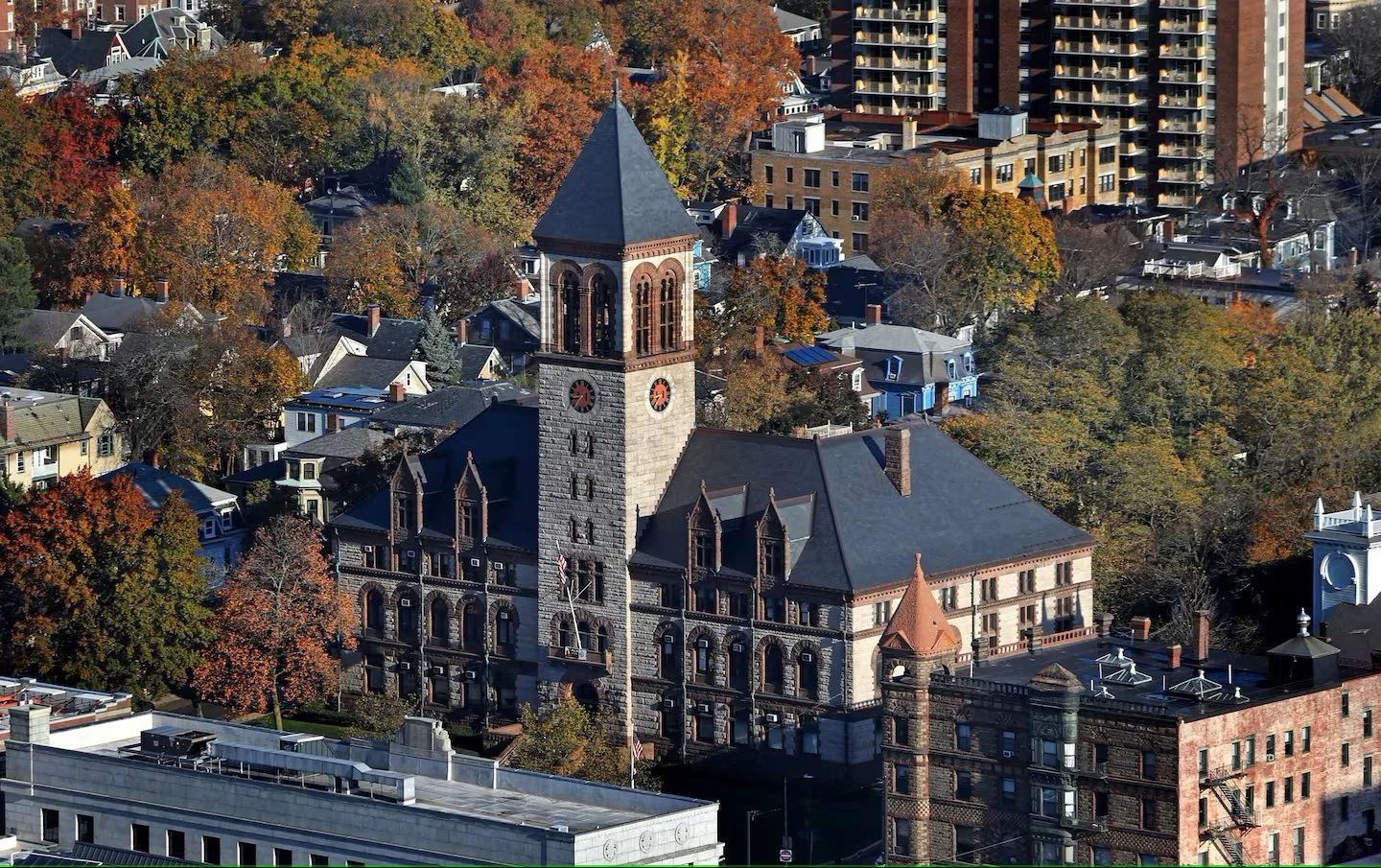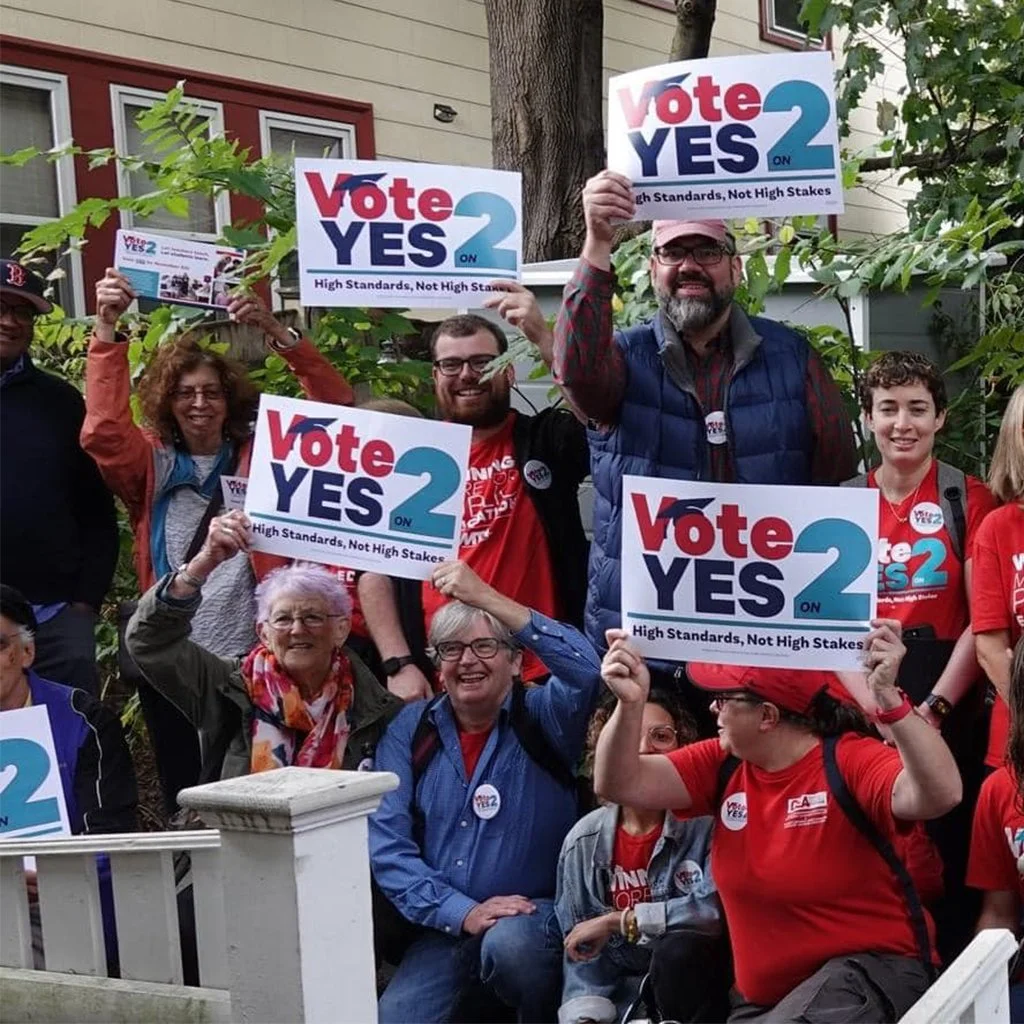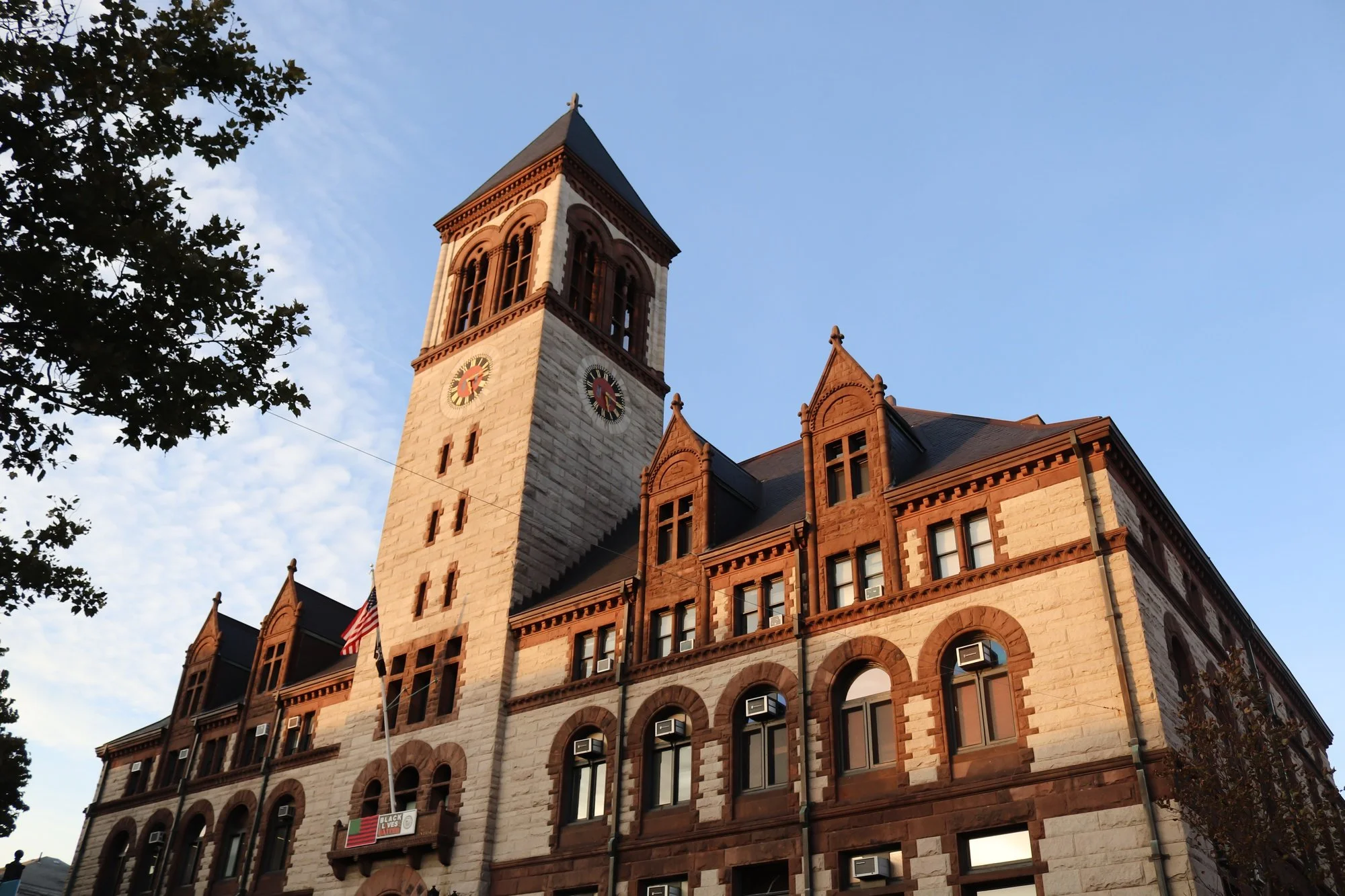Axios — Cambridge doubles down on sanctuary city policy
"Cambridge is not going to lock down or make a deal with the Trump administration and weaken our protections. In fact, we're going to bolster them," said Councilor Jivan Sobrinho-Wheeler, who championed the changes.
City employees will work to document any federal immigration action in Cambridge and identify any ICE agents, "including with masked individuals," Sobrinho-Wheeler said.
Harvard Crimson — Cambridge City Council Strengthens Sanctuary City Ordinance
Language permitting CPD to provide escorts for federal agents or assistance with “traffic control” was struck from the ordinance, a change Councilor Jivan G. Sobrinho-Wheeler said is intended to “make clear that CPD’s only focus is on public safety.”
“The ordinance updates are a recognition that we need to meet the moment, and also that Cambridge is not going to back down or make a deal with the Trump administration and weaken our own protections,” Sobrinho-Wheeler said. “In fact, we’re going to bolster them.”
Cambridge Day — First city housing vouchers approved for unhoused residents, mixed-status families
At the June 2 meeting, the council and city manager agreed to a $5 million free cash appropriation for a federal grant stabilization fund, as well as a $1 million fiscal year 2026 budget increase for the creation of a housing voucher program. This was in response to a May 12 policy order by vice mayor Marc McGovern and councillors Ayesha Wilson, Sumbul Siddiqui and Jivan Sobrinho-Wheeler calling for the creation of such a program, the extension of the Rise Up Cambridge direct-payment program, and the continued operation of the Transition Wellness Center shelter for the unhoused. The $5 million federal grant stabilization fund will use $1 million to help 42 mixed immigration-status households; the remaining $4 million, if necessary, will help 128 formerly unhoused households who are at risk of losing their housing. The city voucher program will house 25 shelter residents in a yet-to-be-determined process administered by the Cambridge Department of Human Services in partnership with the Cambridge Housing Authority.
Cambridge Day — Cambridge moves toward a free shuttle network, boosted by expansion of EZRide since the spring
“We have MBTA buses, we have MIT buses, we have Harvard buses, we have the EZRide. We have the corporate shuttles. We have the red line. We have the green line … we have a ton of transit,” Sobrinho-Wheeler said, arguing against yet another form of transit and for a more cost-effective way to tell residents of their options, or to add stops to established routes. “There are a bunch of things we can do,” Sobrinho-Wheeler said.
Rep. Pressley — VIDEO: Pressley, Advocates, Families Tell ICE: Hands Off Our Immigrant Neighbors
“The federal government’s unlawful targeting of our immigrant residents makes our communities less safe. The people of Cambridge stand with our immigrant neighbors to demand due process for everyone because none of us are safe unless we all are,” said Cambridge City Councilor Jivan Sobrinho-Wheeler.
Cambridge Day — Federal agents are ‘very active’ around Cambridge, made an arrest outside police headquarters
City law requires that police report to the council on detainers every six months, councillor Jivan Sobrinho-Wheeler pointed out. City solicitor Megan Bayer said the requirement “fell by the wayside” when little immigration enforcement actions were occurring.
Cambridge Day — Cambridge leaders weigh reviving cash program for lower-income families in the next fiscal year
The potential switch to city money from federal money raised questions of whether the direct payments would be illegal under a state “anti-aid amendment,” but a legal opinion received by the committee cleared the way for a program that could be shown to be a public good and included families based on impartial criteria. “I’m glad we’re at the point now where we everyone is sort of on the same page, that we can keep doing this even with with city funds,” councillor Jivan Sobrinho-Wheeler said.
Boston Globe — In a topsy-turvy world, the City of Cambridge itself becomes the protester
“There are all sorts of lines being crossed that we’ve never had to deal with before,” said Cambridge City Councilor Jivan Sobrinho-Wheeler. “If any institution can stand up to threats from the president and has the endowment to back it up, it’s Harvard. They should be hearing from their students, their alumni, and the broader community because there’s a lot at stake here beyond the confines of Harvard Yard.”
Harvard Crimson — Cambridge City Council Considers Home Rule Petition To End Broker Fees
The hearing comes almost three months after the City Council unanimously passed a policy order to direct the Neighborhood and Long-Term Planning Committee to explore the feasibility of eliminating forced broker fees in Cambridge to combat the city’s housing affordability crisis.
“I’m planning to introduce a home rule petition to allow Cambridge to end forced broker’s fees and resolutions in support of the state legislation on that topic and around housing junk fees,” Councilor Jivan Sobrinho-Wheeler wrote in an emailed statement.
Cambridge Day — Fears of increasingly totalitarian government cited when Cambridge police ask for more tech
Despite Azeem’s attempts to go through the three requested technologies one by one with the ACLU’s questions, and councillors’ explorations of what safeguards would be in place to prevent hostile federal agencies from seizing data, the conversation was confusing and rushed – part of a meeting that ran nearly five and a half hours. It began with councillor Paul Toner saying to those suggesting that Elow’s proposals be sent to the Public Safety Committee, that “they’re being brought forward now to the council because they were discussed at the Public Safety Committee a number of months ago.”
Councillor Jivan Sobrinho-Wheeler later confirmed with city staff that it was only “the concept of surveillance” that had been discussed then, and each of the three proposals were new.
Cambridge Day — ‘In unsettling territory’: Local leaders grappling with first anti-immigrant policy blitz by Trump
Councillor Jivan Sobrinho-Wheeler warned that city agencies should examine “how we’re sharing information with regional and federal groups.” The issue “will be really important over the next four years, given some of the threats that have come out,” he said. Sobrinho-Wheeler said he was talking to the American Civil Liberties Union, which helped the city write a surveillance ordinance, about “if we want to put some legal language around that.”
WGBH — Boston, Cambridge and Somerville councilors join forces to reform broker fees
Sobrinho-Wheeler said that as a renter he empathizes with his constituents in similar situations. He personally got a rent increase and looked around for more affordable spots.
“We realized that even though there were some places that were more more affordable than our rent increase, with the brokers fee it just wouldn’t make sense to move,” he said. “Because even if it was a couple hundred dollars per month [cheaper in rent], when you add the brokers fee, we still would have lost money.”
Bloomberg — Should Harvard Pay Higher Taxes? Ivy League School Under Scrutiny in Boston
“This is a university with a $50 billion endowment. It can afford to pay for it,” Councillor Jivan Sobrinho-Wheeler said. “We’re rolling out universal pre-K, we’re trying to expand after school, we want to have a free community college program. All of those things are the reasons we should be doing something.”
Harvard Crimson — Cambridge City Council Takes Next Step in Pilot Program to Make MBTA Bus Route 1 Fare-Free
Councilor Jivan Sobrinho-Wheeler said during the meeting on Monday that the fare-free bus will make the transportation more efficient as passengers often slow down bus routes with payment issues.
“If we don’t have alternatives for people to take public transit, we’re gonna see worse traffic, we’re gonna see more traffic accidents, we’re gonna see more pollution,” Sobrinho-Wheeler said.
WBUR — The push and pull over bike lanes in Cambridge
TD: For listeners outside of Cambridge, given that the ordinance still applies, given that the bike lanes still will happen, this has also been a genuinely hard and painful thing for a wide range of people in Cambridge. And I’d like to understand from each of you, as people who represent the community, from your perspectives, why you think that is.
JSW: I think it goes back to why are protected bike lanes important for so many folks in Cambridge. The number one issue is safety: We’ve seen people killed or severely injured every single year in Cambridge and dozens of people injured or hospitalized—I myself was in a bike crash in Cambridge and lost part of my two front teeth. Cambridge is also a city of 120,000 people in 6.5 square miles—it’s physically impossible for everyone to have a car, 120,000 people in 6 miles, that’s just not going to work. … We know [the three delayed] streets have crashes. We know each year there are 30 crashes on Cambridge Street, Main Street, and Broadway. The vast majority of those crashes lead to injuries. Two more years of delay are 30 more crashes per year that are going to lead to more broken teeth, more broken bones, more hospital rides, more potential fatalities. These are potential lives that are on the line here.
Boston.com — Cambridge leaders support physician residents at local hospital chain
The resolution, brought by Councilor Jivan Sobrinho-Wheeler, passed unanimously by the councilors to support residents’ negotiations with Cambridge Health Alliance, which has primary care, specialty care, and hospital locations in Cambridge, Somerville, Malden, Revere, and Everett.
Cambridge Day — Ballot question against MCAS grad requirement draws different results from two cities’ councils
That was brought up Monday in Cambridge with discussion of a policy order sponsored by councillors Jivan Sobrinho-Wheeler, Sumbul Siddiqui and Ayesha M. Wilson. They voted for the order with vice mayor Marc McGovern.
Boston Globe — Cambridge spent years — and $1.4 million — hiding harassment claims against high-profile police officer
“It’s $1.4 million of taxpayer money that could have gone to any number of things,” said City Councilor Jivan Sobrinho-Wheeler, one of two councilors who voted in December 2020 against the payment. “The public should have known what it was going for, and the council wasn’t given the details. The public weren’t given the details. And I still don’t understand why.”
Harvard Crimson — Cambridge DSA, Sobrinho-Wheeler Demand Harvard Cough Up $100 Million in PILOT Payments
According to the petition, this would amount to just more than $100 million — a more than twenty-fold increase from what Harvard currently contributes to the city. In an interview, Sobrinho-Wheeler said he would also be satisfied if Harvard agreed to pay 25 percent of that total, which he said was in line with a bill currently being considered by state legislators.
Harvard Crimson — Cambridge Considers Banning Police Use of Tear Gas in Wake of Protests
“At the end of the day, people want to feel safe,” Sobrinho-Wheeler says. “And the question is, does more policing and [do] certain tactics keep us safe?”
Harvard Crimson — Cambridge City Council Calls to Keep Democracy Center Open
The policy order, which passed unanimously, was proposed by Councilors Jivan Sobrinho-Wheeler, Sumbul Siddiqui, Burham Azeem and Ayesha M. Wilson. Sobrinho-Wheeler said he introduced the order to “raise up those concerns” from local activists and current tenants of the Center.
“Community members and organizations were worried about the short notice of the closure — just a couple months — scrambling to find other space,” he said.
Harvard Crimson — ‘We Didn’t Always Have A Housing Crisis’: Siddiqui, Sobrinho-Wheeler, McGovern Talk Housing at Town Hall
“In the U.S. we’ve gotten to a point where we think of the right to a public education as a fundamental right that everyone has the right to no matter your income or your background,” Sobrinho-Wheeler said.
“But at this point, now, we’re still thinking of housing as this individual piece that you can have or not have the way you have a car and I think our policies for a long time have promoted that,” he added.
Cambridge Day — All neighborhoods could get multifamily homes and see ‘down conversions’ discouraged in laws
In addition to asking staff to study whether the council could write zoning that would disincentivize the loss of affordable multifamily housing through down conversions, Sobrinho-Wheeler’s order wondered if a special permit could be required for one. That would mean a trip to a board to plead the case for a down conversion instead of one being allowed by right.
